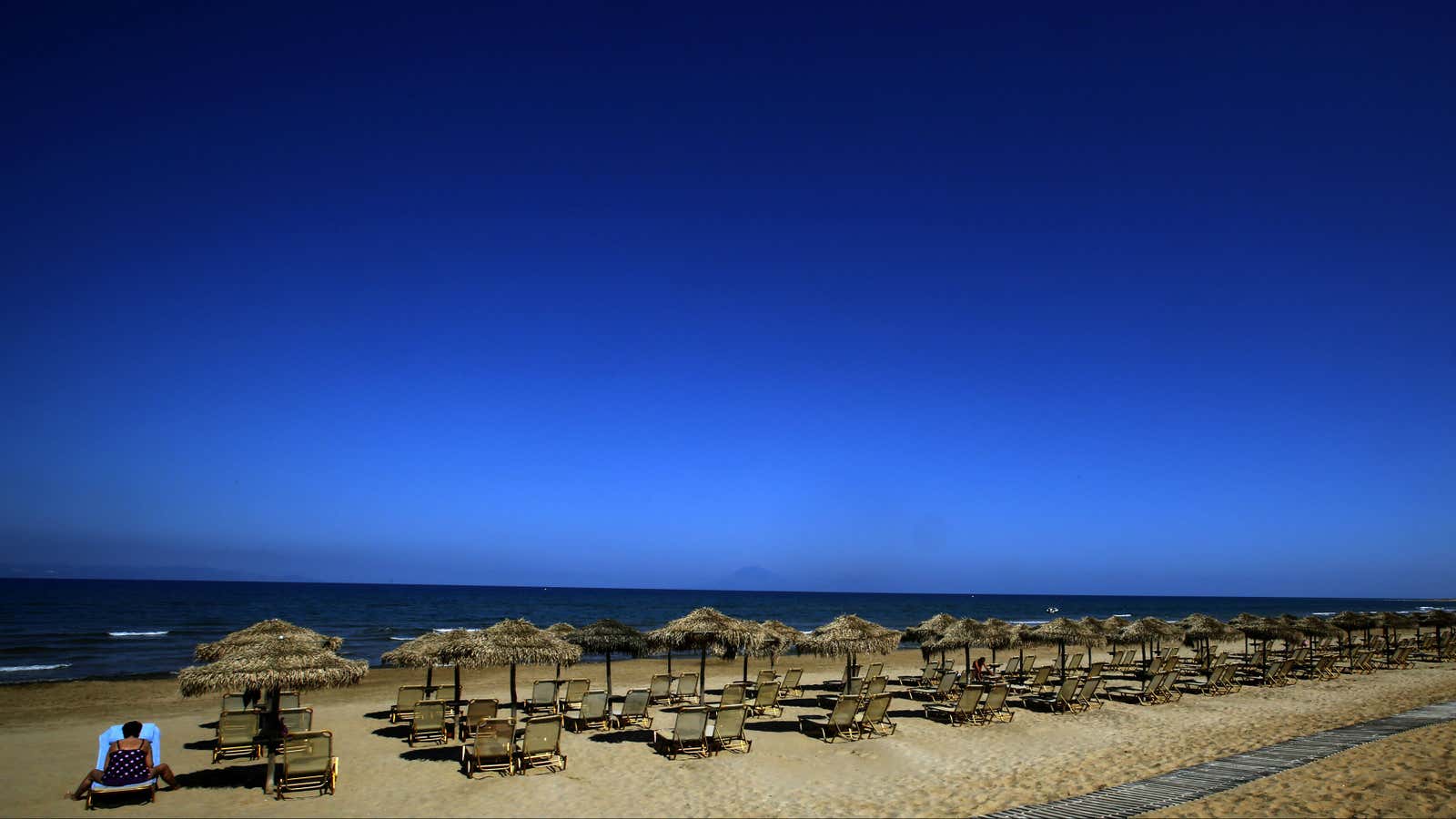Vacations in theory seem great—they offer time to relax and rejuvenate, to do the things you love to do but can’t usually because of the responsibilities of work. So why are so many people reluctant to take them?
In some cases, it’s not a choice. Americans, for example, are not entitled to any paid leave; whether they get paid vacation time is entirely up to the generosity of their employer, and many can’t afford unpaid time off. All too often, workers find they are either too scared to ask their boss for the time. In other cases, they don’t even bother asking because they know they won’t be able to shut off their work-mind if they do go on vacation, anyway. Then there’s one other possible reason that many avoid taking time off: maybe vacations themselves are just too darn stressful these days.
Just reflect on holidays gone by: Was watching a family member learn to drive a new car in a country with unfamiliar rules and signs in a foreign language a pleasant experience? How about scrambling to get to the airport in time for your flight when the train broke down—did that fill you with joy?
A number of recent surveys suggest vacation stress might actually be a thing. A poll of 1,000 UK workers conducted by Britain’s Institute of Leadership and Management noted that just the prospect of an upcoming vacation made 73% of respondents anxious.One 2015 survey from US medical information site Healthline found that 62% of over 2,000 readers who responded had “very or somewhat” elevated stress levels during winter holiday vacations. Finances are a major driver of vacation-related stress: CNV Vakmensen, a trade union in the Netherlands, surveyed its members in 2017, and found that being forced to take vacation at certain points of the year, such as the long summer break when children are out of school, stressed people out. Accommodation and travel options tend to be in higher demand during this time, which raises costs.
Then there’s the disruptions vacation can cause: In 2013, the Huffington Post surveyed 1,000 adult US workers, and found that having to work longer hours in the run-up to a vacation and longer hours afterwards to make up for lost time, stressed out potential vacation-takers.
As Ellen Braaten, a Harvard Medical School professor of psychology, points out, there is a limit to how much our brains can process and prepare at one time. The brain’s prefrontal cortex—the region associated with planning, among other things—only has a certain amount of capacity to deal with thoughts and actions. When people try to fill it with too many things at once, it gets overwhelmed. Braaten describes it as a “brain fog”: It prevents people from making sensible decisions, which can in turn make people more stressed.
If there is one saving grace of vacations being so few and far between, it’s that the effects of this type of stress are only short-lived. But try telling that to parents with a car full of kids.
